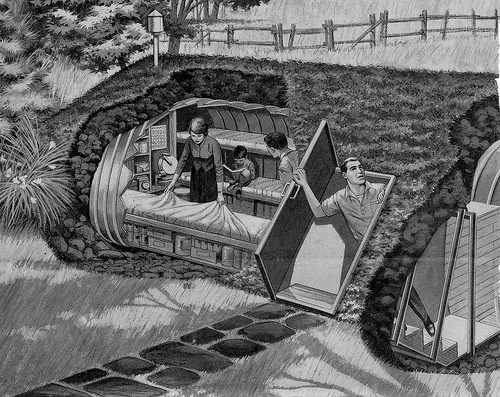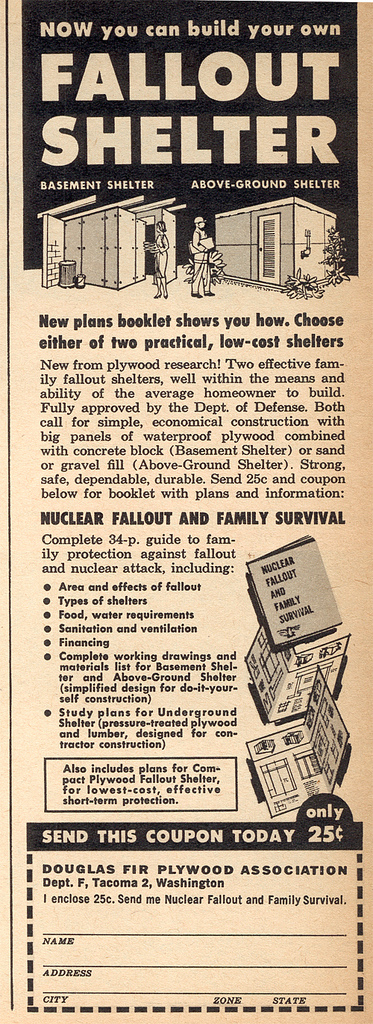Joe grabbed the baseball bat he kept by the door and headed out to have a chat with the "murdering bastard." The alligator was only four feet long but that was plenty big enough to make Joe slow down halfway there and reconsider. Standing in the pouring rain he decided a gun would be better, and he went in the house to find his deer rifle.
"You're tracking mud all over," Lucy said. "Get back in the kitchen and take off those shoes."
"Can't," Joe said, "an alligator ate Puddles." Then he disappeared into the basement.
"What?" Lucy yelled down the stairs.
Joe came up a minute later with his .280 Remington, shoving the magazine into place. "A goddamn alligator ate Puddles."
Lucy's eyes popped wide and she followed Joe to the back yard, screaming. The alligator was pretty much where Joe left it and he got close enough for a good shot.
"Are you sure?"
Joe nodded. "I saw."
Lucy fell to her knees and sobbed. Joe had gotten Puddles for her when she thought she had cancer, to give her something besides herself to look after. The first thing the puppy did when he brought her home was pee on Lucy's foot. Joe laughed and took Puddles outside for the first of a thousand such times. He'd let her loose in the yard while he sat on the porch enjoying a smoke, letting his thoughts wander into territories bright and dark. For the few days they waited for the test results they were mostly dark, and with tears in his eyes he begged God to let Lucy live. He promised God he'd give anything. Anything.
"Where'd he come from?" Lucy cried.
"He fell from the sky."
"God sent us an alligator."
"God didn't send us no alligator."
"It's like one of the plagues of Moses," she said, "like the frogs."
Joe grimaced. "He's not from God, he's from Louisiana. Storm must have scooped him up and carried him all the way here. I saw a show about cows and tornadoes once."
The rain fell harder and it was difficult for Joe to get a good bead on him. Joe moved closer and the gator swung around to face him. Joe retreated.
"What if he swallowed Puddles whole?" Lucy said. "What if Puddles is still alive in there?"
"I don't think so," Joe said.
"Did he chew him up?"
Joe couldn't remember. "It happened so fast," he said.
"You got to shoot him," Lucy said. "You got to shoot him and open him up. You got to do it right now before Puddles suffocates."
Joe tried to figure out how he'd dispose of an alligator. Maybe chop him up and put him in bags. Or bury him. Or take him to the lake and dump him. Just then the alligator decided to make a break for the neighbor's yard.
"Go get my hunting knife," Joe said. He turned, aimed and put two rounds into the alligator's head. He dragged him behind the garage and Lucy brought him the knife. Joe sliced him open from end to end and reached inside. He found a big lump that must have been the stomach and made a slit in the side of it. Puddles tumbled out. Joe picked him up and shook him—he only weighed four pounds. Puddles was lifeless and wet, and smelled like he'd been dead a month. Joe tried again and squeezed the dog's chest but nothing happened. He looked at Lucy and shook his head. Lucy cried as the rain drove harder than ever and washed the alligator's blood into the muddy lawn.
Joe looked to the sky. The rain beat on his eyes and he couldn't hold them open, but he didn't want to close them either, didn't want to get hit in the head with another alligator or whatever else the monster storm decided to drag along with it. Finally he covered the alligator and Puddles with a tarp weighed down with rocks, and took Lucy inside where they changed out of their wet clothes and climbed into bed.
Lucy could smell Joe's smoky breath and she wanted a cigarette. She wanted to take long drags and hold them in until the nicotine filled her bloodstream, until she felt like she used to before Puddles and before the cancer scare.
She turned her head toward Joe. "All I know is Puddles didn't deserve to be eaten by no alligator."
Joe held Lucy in his arms while tears filled his eyes. He had thanked God a hundred times since the good news, but that was before the bill came due. Tonight he simply hoped that was all he owed.
 F. John Sharp lives just west of the foothills of Appalachia in Ah-hi-a, as they sometimes say. His poetry and prose have appeared in numerous online and print publications, including GUD, Salt River Review, Hobart, Pindeldyboz, Flashquake and Eclectica and he hopes you'll go to at least one of those sites to check them out. He is a little behind on building a web site, but asks you to check fjohnsharp.com every single day until he gets it finished, even if it takes years. If it says no such web site exists, take a few minutes to stare at the blank screen and contemplate his alligator story. (The photo was taken in 1959 when he was 2).
F. John Sharp lives just west of the foothills of Appalachia in Ah-hi-a, as they sometimes say. His poetry and prose have appeared in numerous online and print publications, including GUD, Salt River Review, Hobart, Pindeldyboz, Flashquake and Eclectica and he hopes you'll go to at least one of those sites to check them out. He is a little behind on building a web site, but asks you to check fjohnsharp.com every single day until he gets it finished, even if it takes years. If it says no such web site exists, take a few minutes to stare at the blank screen and contemplate his alligator story. (The photo was taken in 1959 when he was 2).








